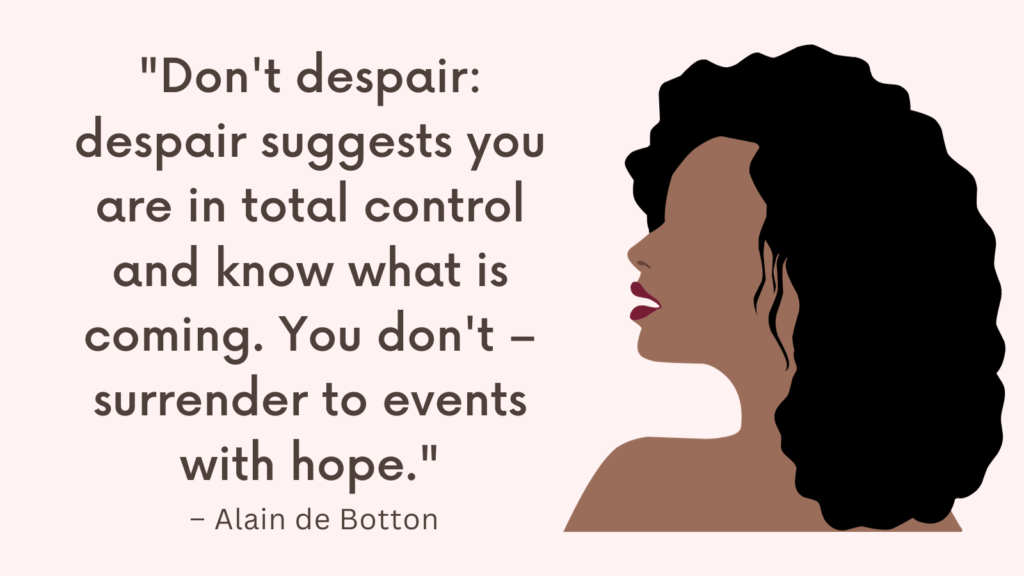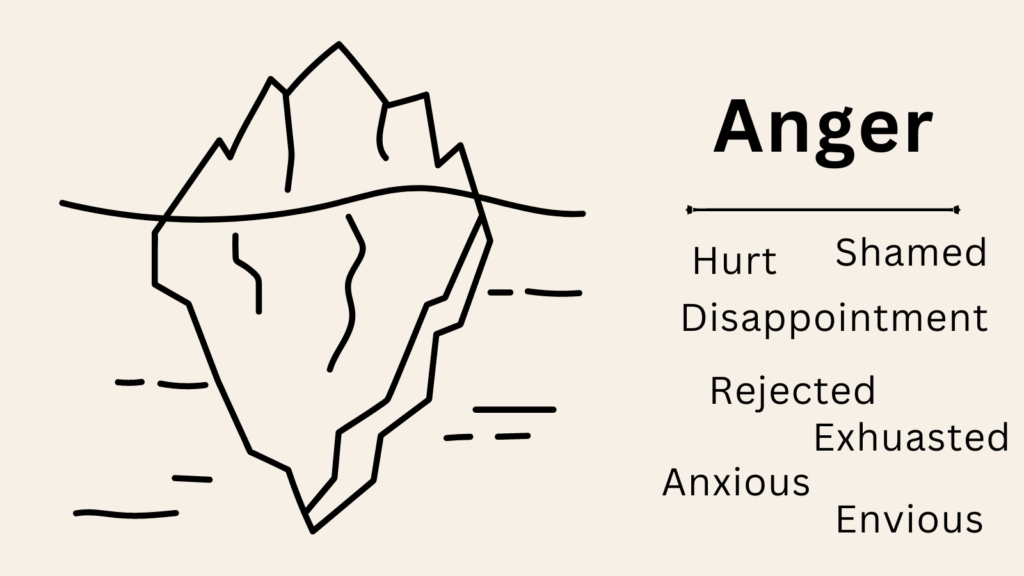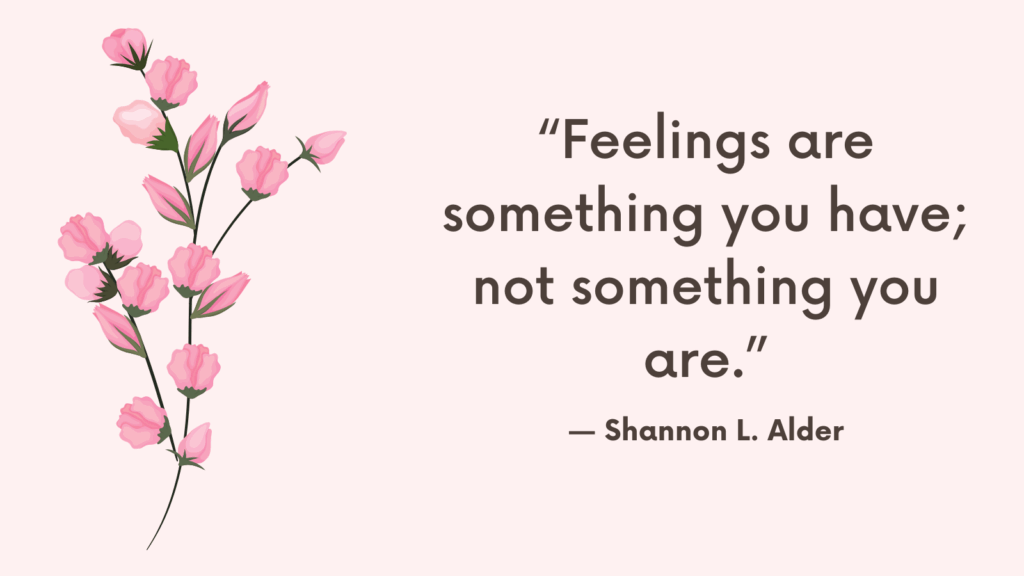In this post, you’re going to learn all about the difference between anger and frustration.
Anger vs Frustration
Anger and frustration are two distinct emotional experiences that can often be confused with one another.
Understanding the differences between anger and frustration can help you navigate and manage these emotions more effectively.
Let’s explore each of these emotions in more detail:
Anger
Anger is a natural and common emotion that arises when we perceive a threat or injustice.
It is often accompanied by feelings of irritation, resentment, or rage. Anger serves as a protective response to defend ourselves or our values.
However, it is important to note that anger itself is not inherently negative or harmful. How we express and manage it is what matters.
1. Physiological responses: When experiencing anger, the body activates the fight-or-flight response, leading to increased heart rate, muscle tension, and adrenaline release. These physiological reactions prepare us for action.
2. Triggers: Anger can be triggered by various factors, such as feeling disrespected, violated boundaries, or witnessing injustice. Unrealistic expectations, power imbalances, and unresolved conflicts can also contribute to anger.
3. Expression: Anger can be expressed in healthy or unhealthy ways. Healthy expression involves assertive communication, setting boundaries, and addressing the underlying issues constructively. Unhealthy expression includes aggression, yelling, or resorting to violence.
4. Impact: Uncontrolled or chronic anger can have detrimental effects on both physical and mental health. It can strain relationships, lead to impulsive behavior, and even contribute to the development of cardiovascular problems or other health issues.
Related: Top 14 CBT Exercise For Anger Management (+FREE Anger Worksheets)
Frustration
Frustration, on the other hand, is an emotion that arises when we encounter obstacles or barriers preventing us from achieving our goals or desires.
Unlike anger, frustration does not necessarily involve feelings of resentment or aggression but is primarily centered around the inability to progress or accomplish something.
1. Emotional experience: Frustration typically involves feelings of disappointment, annoyance, or exasperation. It arises from a sense of being stuck or thwarted in our efforts.
2. Triggers: Frustration can be triggered by various situations, such as facing repeated setbacks, encountering challenges beyond our control, or feeling overwhelmed by external circumstances.
3. Expression: Frustration can be expressed through venting, complaining, or feeling overwhelmed by the situation. However, it is essential to find healthy ways to cope with frustration rather than allowing it to lead to chronic stress or generating negative emotions.
4. Impact: While short-term frustration is a normal part of life, chronic frustration can contribute to stress, anxiety, and even depression. It can affect our motivation and overall well-being if not adequately addressed.
Related: Assertive Anger: What It Is & How to Practice It

Managing Anger and Frustration
Managing anger and frustration is essential for maintaining emotional well-being and healthy relationships. Here are some scientifically supported strategies to help you effectively manage these emotions:
1. Recognize triggers
Pay attention to the situations or events that trigger your anger or frustration.
By identifying these triggers, you can develop strategies to avoid or minimize exposure to them.
The following are some common triggers:
- Being criticized or judged by others.
- Feeling disrespected or treated unfairly.
- Experiencing a loss or failure.
- Dealing with difficult or unreasonable people.
- Facing constant interruptions or delays.
- Feeling overwhelmed by excessive workload or responsibilities.
- Perceiving a lack of control or autonomy in a situation.
- Dealing with ongoing conflicts or unresolved issues.
- Experiencing repeated disappointments or unmet expectations.
- Being subjected to loud noises or chaotic environments.
- Feeling invalidated or ignored in interpersonal relationships.
- Witnessing or experiencing injustice or discrimination.
- Feeling betrayed or let down by someone you trust.
- Facing financial or economic difficulties.
- Dealing with health problems or chronic pain.
- Experiencing change or uncertainty in personal or professional life.
- Dealing with traffic congestion or transportation-related issues.
- Being mistreated or experiencing bullying.
- Coping with feelings of loneliness or social isolation.
- Engaging in challenging or complex tasks.
2. Practice relaxation techniques
Engaging in relaxation exercises such as deep breathing, progressive muscle relaxation, or meditation can help calm your mind and body during moments of anger or frustration.
These techniques can effectively reduce stress and promote a sense of calmness.
Here’s a simple deep breathing exercise that you can try when you feel anger building up:
1. Find a quiet and comfortable place to sit or stand, where you won’t be disturbed.
2. Close your eyes and take a moment to focus on your breath.
3. Take a slow, deep breath in through your nose, counting to four as you inhale. Fill your lungs completely with air, allowing your abdomen to rise.
4. Hold your breath for a moment, pausing for a count of four.
5. Slowly exhale through your mouth, counting to four as you release the breath. Empty your lungs completely, allowing your abdomen to fall.
6. Repeat this cycle of inhalation, holding, and exhalation for several minutes, focusing solely on the sensations of your breath.
7. As you practice this deep breathing exercise, try to let go of any tension or negativity with each exhale. Imagine yourself releasing the anger and frustration with every breath out.
Deep breathing helps activate the body’s relaxation response, reducing physiological arousal and promoting a sense of calm.
Practice this exercise regularly, not only when you’re angry, to build your ability to manage anger more effectively.
Related: Anger Iceberg: How to Use It (+FREE Anger Iceberg Worksheet PDF)
3. Take a break
When you feel your anger or frustration escalating, take a break from the situation.
This can involve physically removing yourself from the environment, going for a walk, or engaging in an activity you enjoy.
Taking time to cool down can help prevent impulsive reactions and allow you to approach the situation with a clearer mindset.
4. Use cognitive restructuring
Our thoughts play a significant role in how we perceive and react to situations.
Challenge negative or distorted thoughts that may be fueling anger or frustration.
Replace them with more realistic, balanced, and positive thoughts.
For example, instead of thinking, “Everything always goes wrong,” reframe it as, “Challenges are a normal part of life, and I can find solutions.”
5. Engage in physical activity
Physical exercise has been shown to be an effective outlet for managing anger and frustration.
Engaging in regular exercise not only helps release built-up tension and stress but also promotes the release of endorphins, which are natural mood boosters.
Related: Best 10 Anger Management Books And Workbooks
6. Practice assertive communication
Expressing your needs, feelings, and boundaries assertively is crucial for managing anger and frustration in relationships.
Use “I” statements to clearly communicate your perspective without blaming or attacking others.
Active listening and validating the other person’s point of view can also contribute to healthier communication.
7. Develop problem-solving skills
Rather than focusing solely on the emotions surrounding the situation, shift your attention to finding solutions.
Break down the problem into smaller, manageable steps and brainstorm potential strategies to address it.
By actively problem-solving, you regain a sense of control and reduce feelings of helplessness or frustration.
Related: Top 15 Anger Journal Prompts (+FREE Worksheets)
8. Practice self-care
Engage in activities that promote self-care and overall well-being.
This may include getting enough sleep, maintaining a balanced diet, engaging in hobbies, spending time with loved ones, or practicing mindfulness.
Taking care of yourself holistically can improve your ability to cope with anger and frustration.
9. Learn from past experiences
Reflect on previous instances of anger or frustration and identify patterns or triggers.
Use these experiences as opportunities for learning and growth.
Consider what strategies were effective in managing these emotions and apply them in future situations.
Related: Rage vs. Anger
Conclusion
Managing anger and frustration is a skill that can be developed over time.
By learning to recognize and address these emotions, you can improve your overall well-being and create healthier relationships with others.



